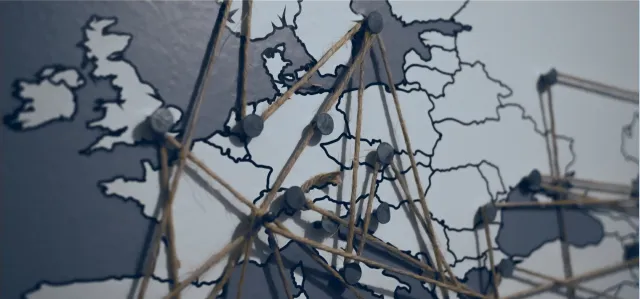The Geneva Centre for Security Policy podcasts is your gateway to top conversations on international peace and security. It will bring you timely, relevant analysis from across the globe with over 1,000 multi-disciplinary experts speaking at 120 events and 80 courses every year. Click subscribe, download on your favourite podcast player, get notified each time we released bi-weekly episode.
Listen to the fourth episode
Host: Hello, my name is Claire Heffron, and welcome to the Geneva Centre for Security Policy podcast on the latest issues, advancing peace, security and international cooperation. We spoke to Richard Gowen UN Director at the International Crisis Group. He shares with us the threats and opportunities for Europe to meet the current crisis of multilateralism and we discussed the regional dimensions of Azerbaijan's foreign policy and the wider Caspian region with Foreign Policy Advisor to the President of the Republic of Azerbaijan.
Host: The European Union describes multilateralism as having the UN at its core. it is the cornerstone of the US foreign and security policy, and is the best way to ensure peace, security, human rights and prosperity. Richard Gowen, co-author of “Three Crises and an Opportunity: Europe Stake in Multilateralism,” explained to us the benefits, risks and challenges ahead. Firstly, you believe that there were three related crises what are they?
Richard: You hear a lot of diplomats talking about a crisis of multilateralism. But that's a rather vague phrase. I think there are three crises. There's a crisis of power, because the US China and to some extent Russia, are really competing to control the multilateral system. There's a crisis of relevance, because the UN doesn't have frameworks for dealing with emerging technologies like AI. And there’s a crisis of legitimacy. Because the UN isn't dealing with the public's concerns about inequality, or perhaps migration in the way that they want.
Host: The situation also represents an opportunity for European influence. What options are there for Europe to defend multilateral action, and in which areas?
Richard: European diplomats save multilateralism day to day? If you look at an organisation like the UN, you'll find that the EU's members convene about four-fifths of the working groups around the General Assembly. And for this year's Climate Action Summit in New York, EU members were leading about a third of the working groups preparing for the summit. EU diplomats do multilateralism out of habit. And they're also innovating. We've seen France and Germany launch a new alliance for multilateralism, which has led 60 countries to sign up to new pledges around cyber and international humanitarian law. So, the EU can push back against a very difficult anti multilateralists tide,
Host: What potential partnerships should be sought that could build new coalition's for multilateral action in an era of turbulence and unpredictability?
Richard: I think 15 or 20 years ago, European diplomats imagined that, in the end, every country would sign up to liberal values, and every country would follow policies similar to the EU. We know that's not true. We've got to work with other countries on a case by case basis. So, it's essential to work with China on climate change. Even if we can't agree on human rights. It's essential to work with Islamic countries in terms of protecting the Muslim minority in Myanmar, even if we have differences over values. We live in an age where you need to be pragmatic, not to principle for your own good.
Host: What's the impact on the EU and its role?
Richard: The overwhelming threat to the multilateral system today is the emergence of bipolar competition between Beijing and Washington. Now, that doesn't start in the multilateral system, that starts in the economic sphere, that starts in the security sphere in the Pacific. But if Beijing and Washington are increasingly strategic competitors, that will lead them to treat the UN and other multilateral forums as battlefields where they vie for advantage and we're already seeing that even now in the Security Council on issues like Afghanistan
Host: What countries do they need to focus on?
Richard: The EU has to work with different coalition's on different sets of problems. So, one area where the EU needs to focus a lot of strategic attention, and to some extent military attention, is dealing with terrorism and disorder in the Sahel. But to do that, the Europeans need to work with countries in the region like Nigeria, or Niger, to find sustainable strategies to contain jihadi groups. Conversely, the EU needs to work with technologically advanced countries to set new standards on artificial intelligence, cyber and other new technologies. Now that means working with a completely different set of countries, including Asian countries, that have expertise in those areas. There's no one size fits all group for the EU
Host: Macron said at the recent NATO Summit in London, that NATO is brain dead. What are the implications do you see from this?
Richard: I think that whatever President Macron says NATO will continue to play a crucial role, just as it did in the Cold War as the centre for territorial defence of Europe, although clearly political tensions with countries like Turkey make that harder. What I think President Macron has recognised, especially in his talk about the need for outreach to Russia, is that you cannot sustain a global multilateral system, if big powers are not willing to sit down and talk about their differences. And we know that the big powers of today are going to disagree on many issues. But if all they do is go to the Security Council and shout at each other, or meeting UN Disarmament Committees and shout at each other, then that doesn't make us any safer, so we at least have to look for spaces of cooperation.
Host: And finally, what's your advice to future EU leaders?
Richard: In 2020, EU leaders will most probably have to deal with the much-delayed reality of Brexit and in the multilateral sphere, Brexit is going to be a problem because the UK has been at the centre of Europe, European diplomacy and organisations like the UN for many years. We need to find some sort of framework that allows the EU27 and the British to continue to work together on multilateral problems. Because on its own, the UK will lose influence. And without the UK, the European Union will have less expertise and fewer political networks to bank on an old like organisations like the UN.
Host: Earlier we spoke to Hikmat Hajiyev Foreign Policy Advisor to the President of Azerbaijan. He gave us insight into Azerbaijan's current foreign policy initiatives and its relationship with the wider community, including its neighbours in the Caucasus region. Firstly, wasn't Azerbaijan's foreign policy initiatives?
Hikmat: Azerbaijan’s foreign policy first of all based on the key fundamental principles, and Azerbaijan's foreign policy approach we have a security consciousness or security based on foreign policy. In a sense, our foreign policy should also serve Azerbaijan's security strengthening its independence and also providing its territorial integrity and Azerbaijan foreign policy also based on the principles of the norms and principles of international law, and also Charter of the United Nations. And in our foreign policy approach, we always guided by as a predictability, transparency and openness. And we also appreciate effective partnership and cooperation with our partnering countries and now transforming it into the priorities of Azerbaijani foreign policy, the first priority we should highlight Azerbaijan's, restoring Azerbaijan territorial integrity and sovereignty within its internationally recognized borders is a fundamental principle for Azerbaijan because Azerbaijan is suffering more than 25 years occupation of its territories, and more than 1 billion Azerbaijani’s are becoming refugees and IDPs as a result of this occupation, so that through the negotiation process resolving all this conflict and providing Azerbaijan territorial integrity is a must. And second key priority for Azerbaijan. It's a development of cooperation of bilateral cooperation with a neighbouring and regional countries. And development of cooperation with the neighbouring countries is also one of the priority for all countries, and including for Azerbaijan and in that domain, I can probably say but Azerbaijan has managed to build mutually beneficial cooperation and partnership including at a level of strategic partnership with all its neighbours, Russia, Iran, Turkey, Georgia without borders of Azerbaijan, Azerbaijan have an excellent relations.
Host: What about your relationship with the EU and the international community?
Hikmat: Therefore, developing Azerbaijan cooperation was the European Union and individual EU countries, with the United States, after the Brexit with Great Britain, which is the United Kingdom is an important patent for Azerbaijan. And also, China, Japan, South Korea, and also the regional prism with African countries and Latin American countries are the important priorities for Azerbaijan. We also see it in the multilateral platforms as well as Azerbaijan recently assumed chairmanship of the Non-Aligned Movement. Azerbaijan, a couple of days ago hosted summit of the Non-Aligned Movement. After the UN General Assembly this is one of the biggest gatherings and it shows that there is a confidence, respect by international community to Azerbaijan, that Azerbaijan rendered with the chairmanship position as a multilateral diplomacy, because we do believe being a geographically small country, we do believe that a multilateral diplomacy and so multilateral diplomacy we do also believe that we can find a solution to the common problems of the…related to international peace, security and sustainable development as well. Therefore, Azerbaijan actively engages with international and regional institutions.
Host: What are the new threats and challenges
Hikmat: Elements of radicalism and extremism, and also geographically, South Caucasus is very close to new hotbeds of the conflicts in the wider Middle East region, which overall issues can potentially affect security in the region of the South Caucasus as well. But we are working with our partner countries on site issues as well.
Host: And finally, your advice to future leaders.
Hikmat: As for the future diplomats, my friendly, you know, recommendation would be for them to believe in rule of law in international affairs and the rule of law, it's not only a matter within the states, it should also be a matter of within the states and among the states as well. Unfortunately, we see diminishing application of the rule of law-based approach in international affairs and challenges and the risks are increasing. And also, we also see what international institutions and the practicality and functionality are somehow decreasing. And therefore, along with the rule of law, believing and multilateralism, there is no single solution of the global challenges and difficulties. And also, my friendly advice to my future colleagues of the diplomats would be before when we started in a diplomacy, our major focus was on humanitarian sciences, theory of international relations, history of international relations, legal aspects, but now the agenda of the diplomacy is growing. Now, artificial intelligence is coming to the fore of the diplomacy as well, tomorrow, as the countries we should think about that as well, making the common convention or pollution of the space, I can share my own experience. When I was at a foreign ministry spokesperson of Azerbaijan foreign ministry, I was in my position, as demanded I should make a statement about a nuclear power plant in neighbouring country. So, what to make a statement about a nuclear power plant as a potential risk to our region. I was obliged to start with nuclear physics. Imagine a diplomat studies in nuclear physics, but in a future, but we should accept it. And therefore, we should have future diplomats and including the current ones should have much broader approach to the international issues.
Host: That's all for today's podcast, GCSP. Thanks for listening. And thank you to Richard Gowan for joining us along with Hikmat Hajiyev, join us again next week to hear all the latest insights on international peace and security. Make sure you subscribe to the podcast on iTunes. Until then, bye for now.
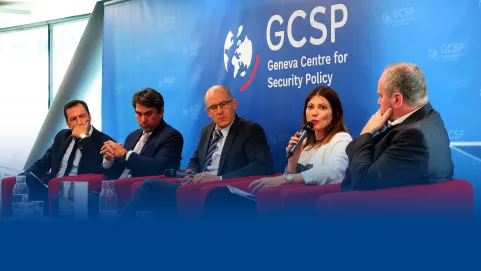 European multilateralism and other stories
">
European multilateralism and other stories
">
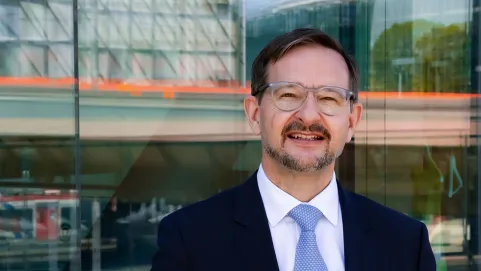 European multilateralism and other stories
">
European multilateralism and other stories
">
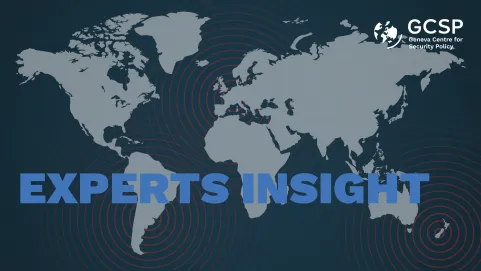 European multilateralism and other stories
">
European multilateralism and other stories
">
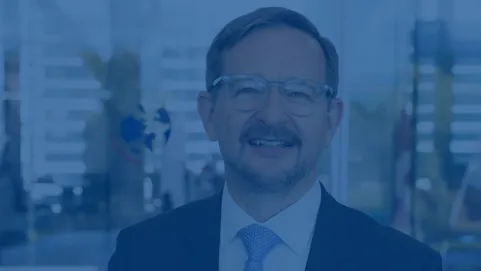 European multilateralism and other stories
">
European multilateralism and other stories
">
 European multilateralism and other stories
">
European multilateralism and other stories
">
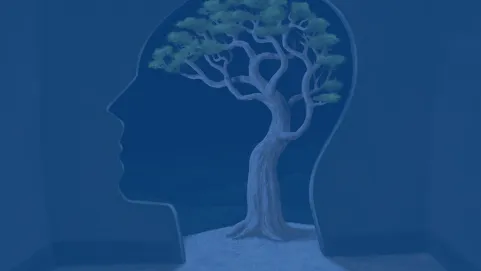 European multilateralism and other stories
">
European multilateralism and other stories
">
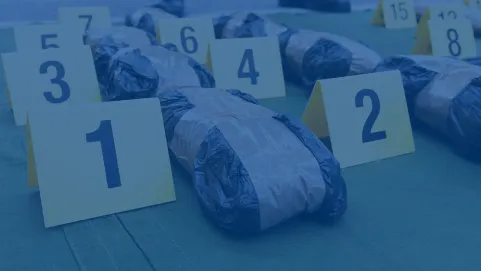 European multilateralism and other stories
">
European multilateralism and other stories
">
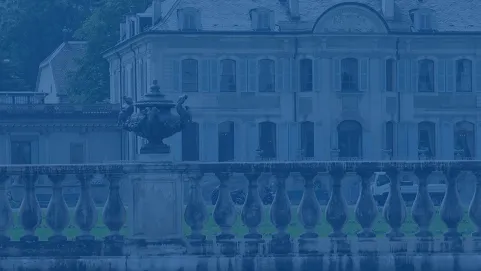 European multilateralism and other stories
">
European multilateralism and other stories
">
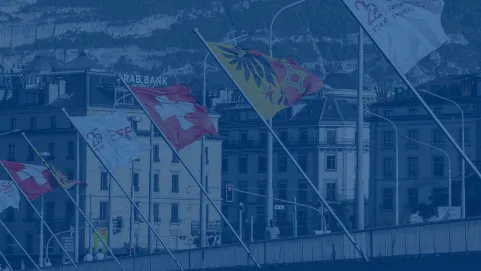 European multilateralism and other stories
">
European multilateralism and other stories
">

